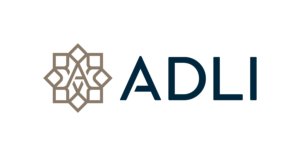What Exactly Are Trademarks & Copyrights?
Copyrights and trademarks are commonly seen in our day-to-day life. They are an important part of protecting your work and brand that is uniquely created for your business. Both can easily be infringed upon, and it is important to recognize what exactly copyrights and trademarks are, and when is it necessary to bring a dispute over the two to court.
Let’s first explore what a trademark is. A trademark is a word, symbol, or anything that is registered legally as a representation of a company or product. For example, think of Coca-Cola. Right away, your mind probably shoots to the logo found on every can and platform that Coca-Cola is present. That word, or logo, is a trademark to Coca-Cola. If it is used elsewhere, this is an illegal use for the trademark.
 Having a legally registered trademark means that you have trademark rights. How do you acquire these rights? There are two ways. First, you can be qualified for trademark rights when you are the first to use this trademark in commerce. Second, you can acquire rights by federally registering it with the U.S. Patent and Trademark Office, commonly known as (“PTO”). By utilizing one of the two avenues listed, your trademark can be legally protected and encompass legal rights protected in federal court.
Having a legally registered trademark means that you have trademark rights. How do you acquire these rights? There are two ways. First, you can be qualified for trademark rights when you are the first to use this trademark in commerce. Second, you can acquire rights by federally registering it with the U.S. Patent and Trademark Office, commonly known as (“PTO”). By utilizing one of the two avenues listed, your trademark can be legally protected and encompass legal rights protected in federal court.
How can your trademark be infringed? The use of the trademark in commerce for the sale of a good or service can confuse consumers as to who is the sponsor behind the good or service. This confusion constitutes trademark infringement as the customer was under the impression they were purchasing the good or service from your specific company, not the one using your trademark.
Let’s now explore what a copyright is. Copyright is a legal right that is recognized federally granting the original creator of work the exclusive rights for usage and distribution. For example, copyright rights can exist within the music industry, a literary work, or a movie. However, it is important to note that copyrights only exist for a limited time, depending upon your definition of limited. The copyright exists for around 70 years after the original creator’s death. Though it is not infinite, it usually lasts another lifetime outside of the creator’s. You also have the right to perform the copyrighted work publicly. If you’re work is a music copyright, no other individual can perform or play your work without adhering to proper copyright protocols. You also have the right to display your copyrighted work. For example, if your copyrighted work is a sculpture or dramatic work of art, it can not be performed or displayed without adhering to the proper copyright protocols or it is susceptible to copyright infringement.
What are the legal rights behind copyrights? Well to start, you have the legal right to sue or bring upon litigation against individuals or companies who use your copyright without your permission or paying the copyright fee. You also are granted exclusive rights to your copyrighted material to control the usage and distribution of the work you copyrighted, and have the ability to derive off the copyrighted work. For example, a Star Wars sequel can’t come from a production company that doesn’t own the copyright rights to it. However, to obtain legal rights, there needs to be a registration. The copyrighted material has to be submitted to the US Copyright Office to be federally recognized and protected against in court.
How are copyright infringements litigated? Let’s first understand what constitutes copyright infringement. If the copyright holder suffers damage from the
infringement, they have a right to litigation. For example, copyright owners may have the right to receive a royalty when their work is used. That provides the holder with the legal right to get paid for the usage of the copyrighted material. If the payments aren’t made, the holder ensues a damage and is therefore entitled to that compensation. Now, litigation behind copyright infringements can be difficult as a monetary value needs to be placed on the copyrighted material. There also needs to be measurement on the damages suffered by the holder, and the extent and willfulness of the infringement.
Now that we have explored what trademarks and copyrights are, as well as the legal protection that comes along with violations of these rights, you can take solace in knowing ADLI can assist you with a copyright or trademark litigation. Our seasoned lawyers are dedicating in assisting our clients to prevent copyright infringement, and enforce the rights through litigation or a settlement. Further, we provide counseling on both trademark and copyright services to ensure that you fully understand what both are, and the legal rights derived from each.
Check out our website to find out more about our trademark and copyright services and counseling, as well as see the other legal services ADLI offers.
